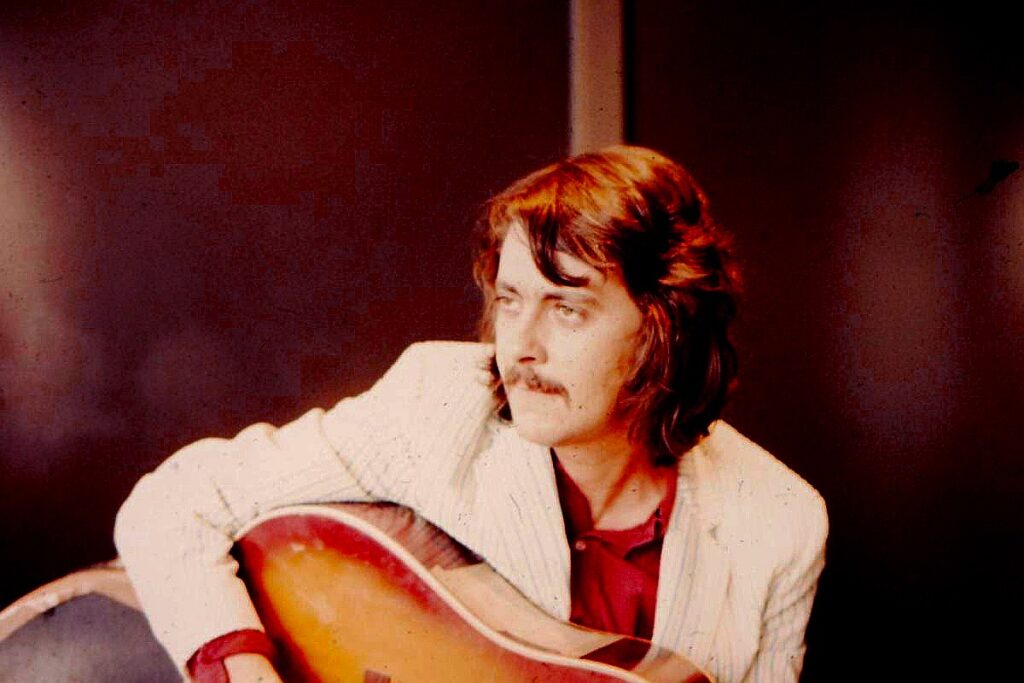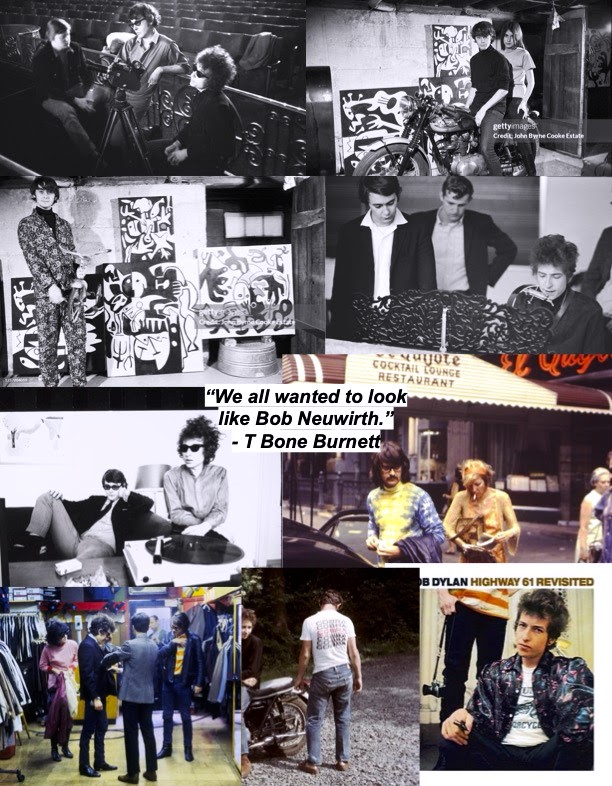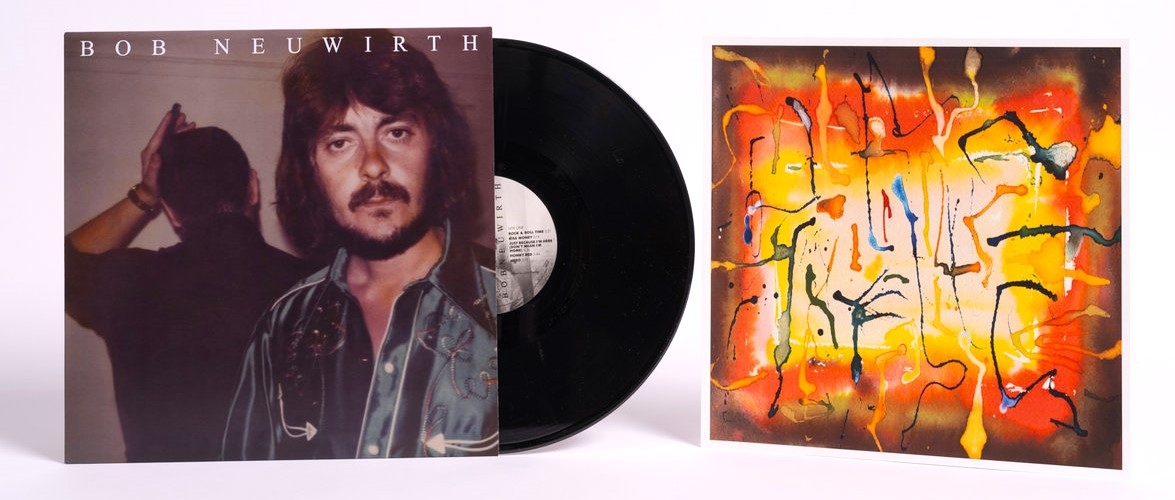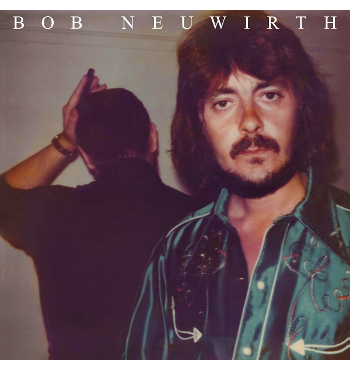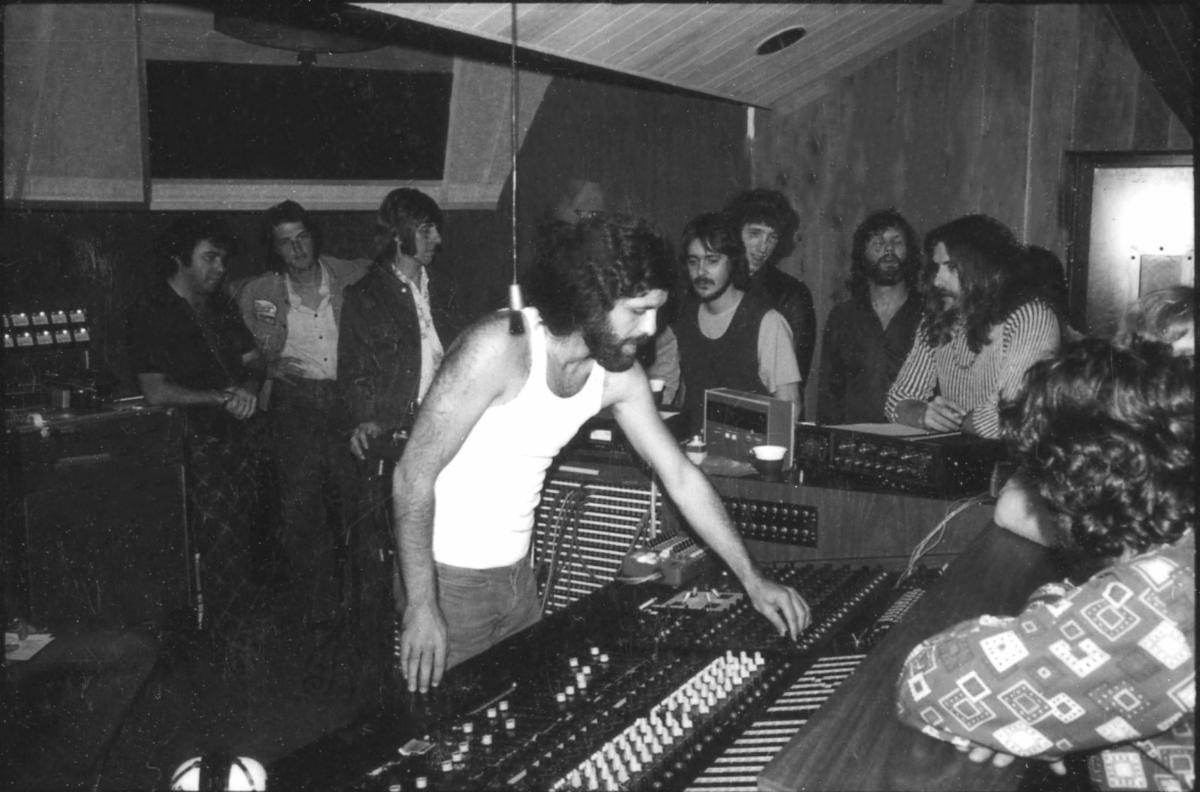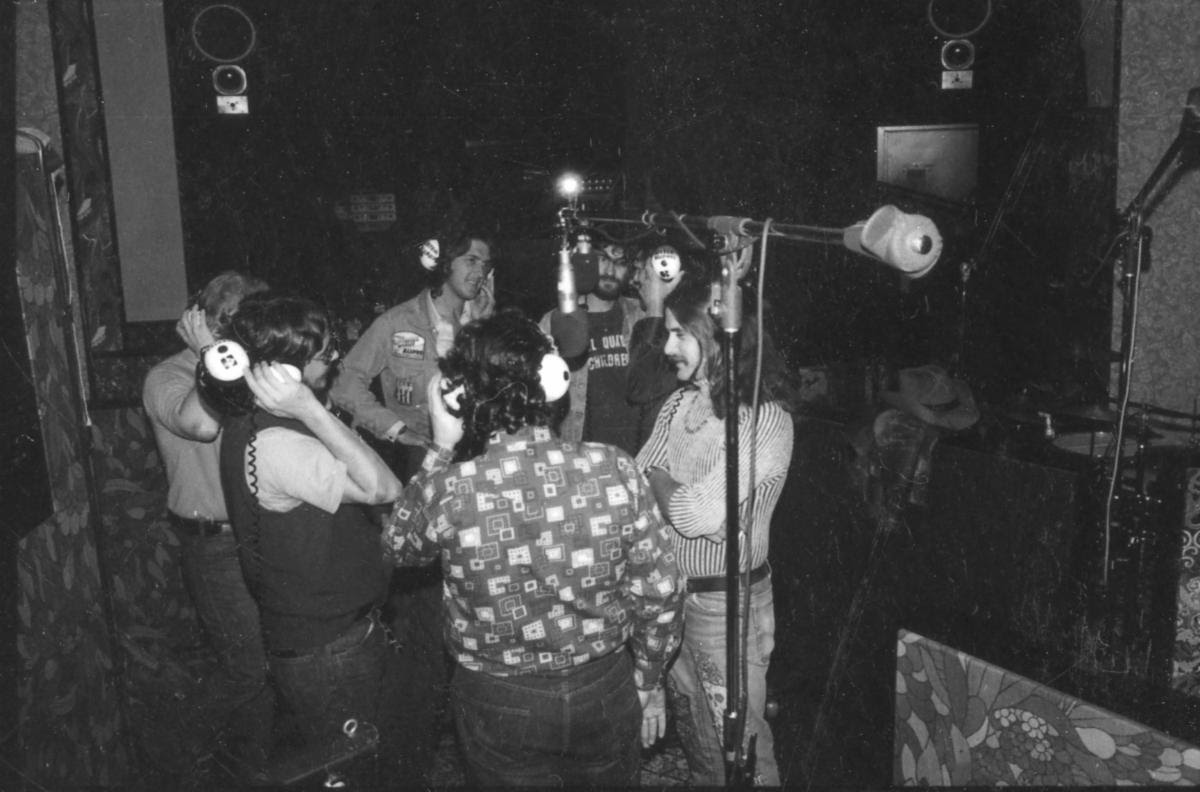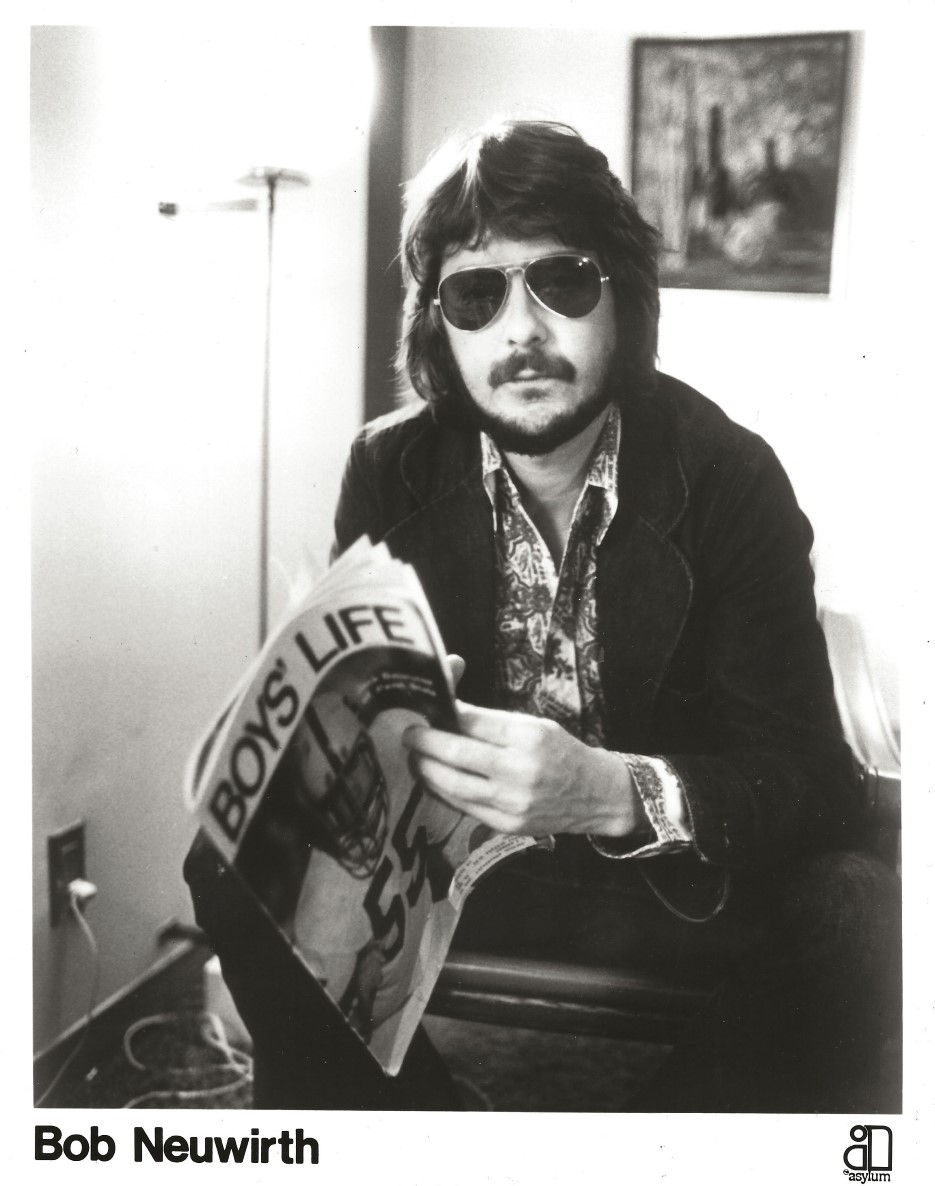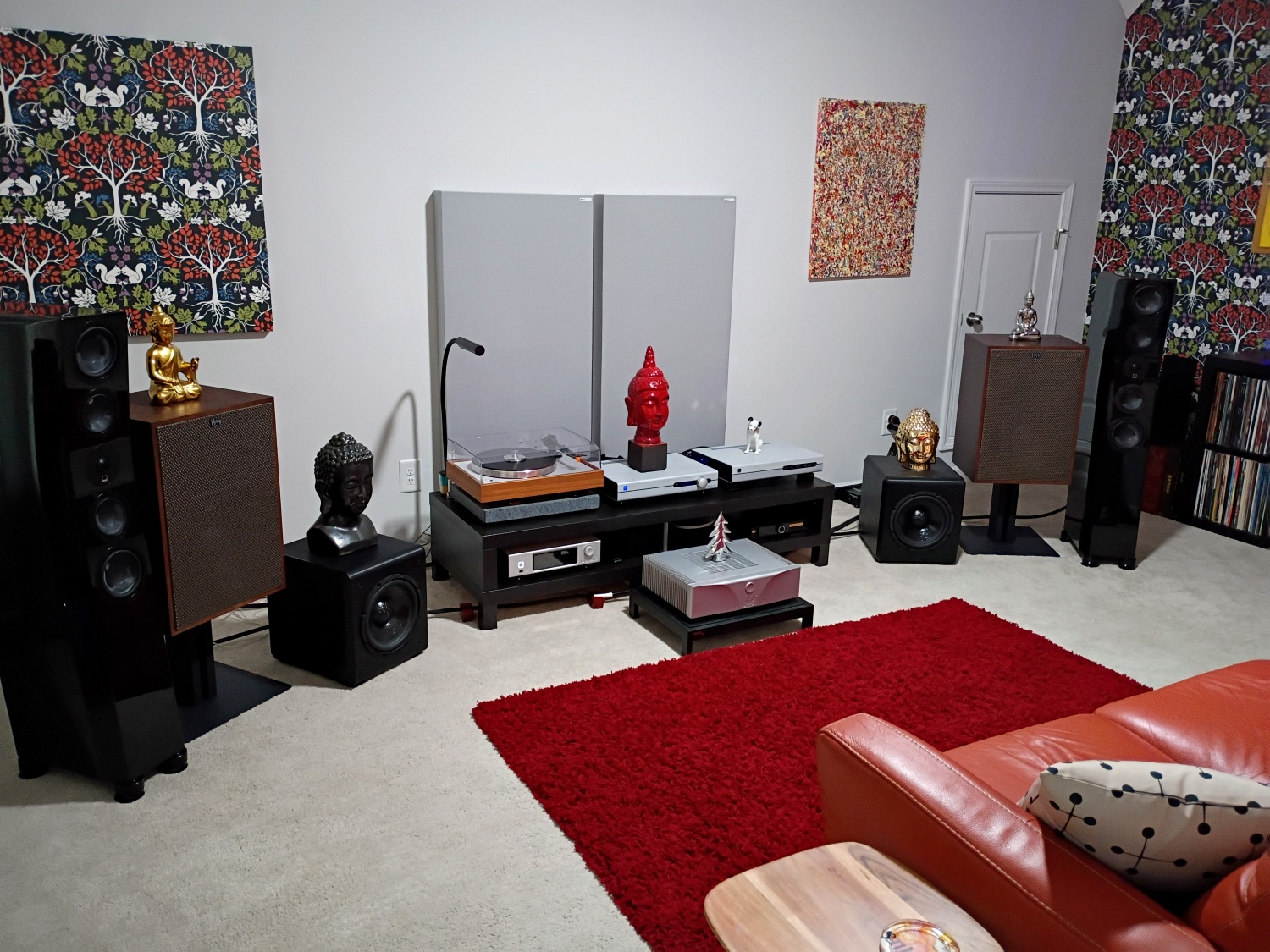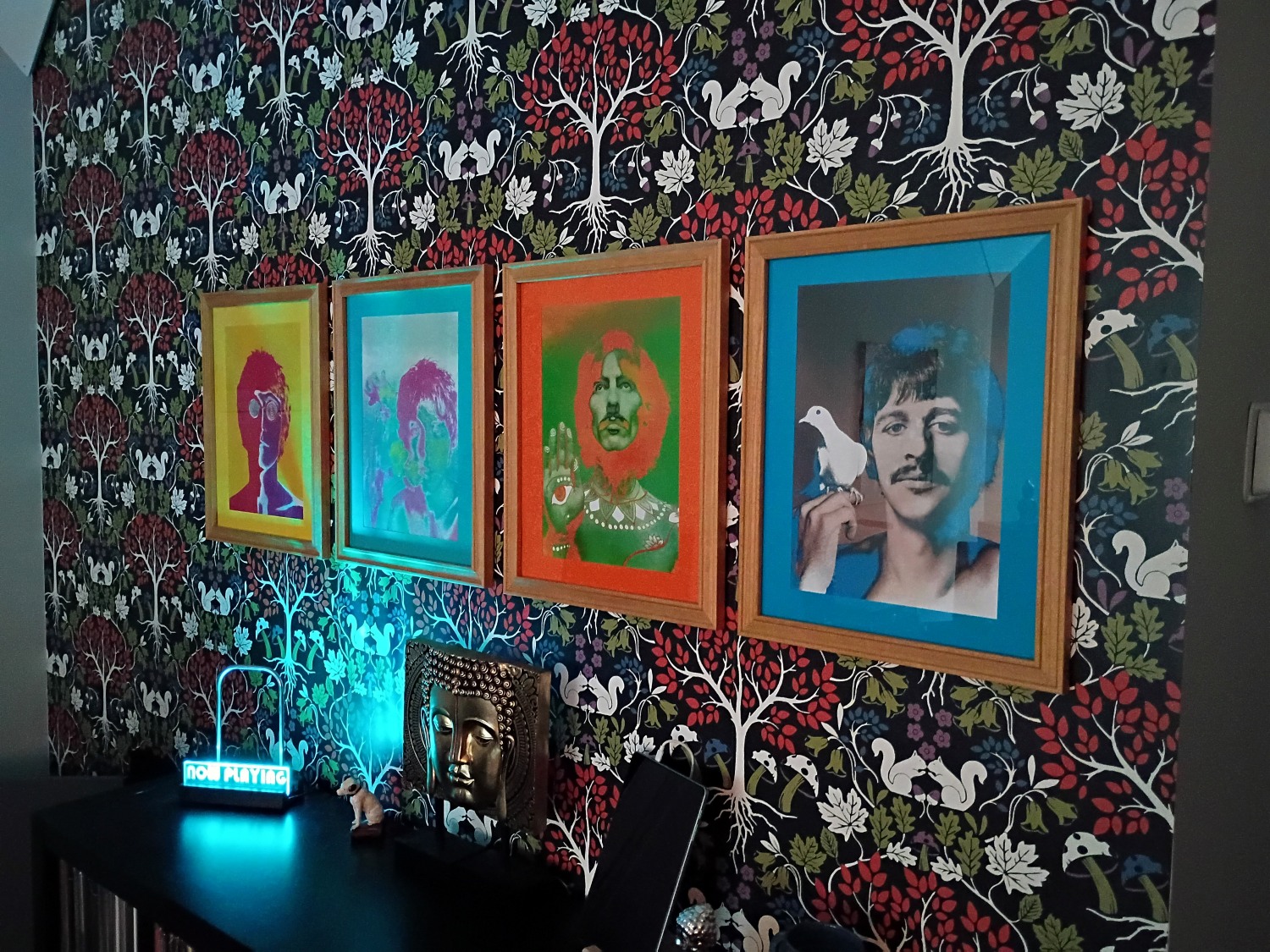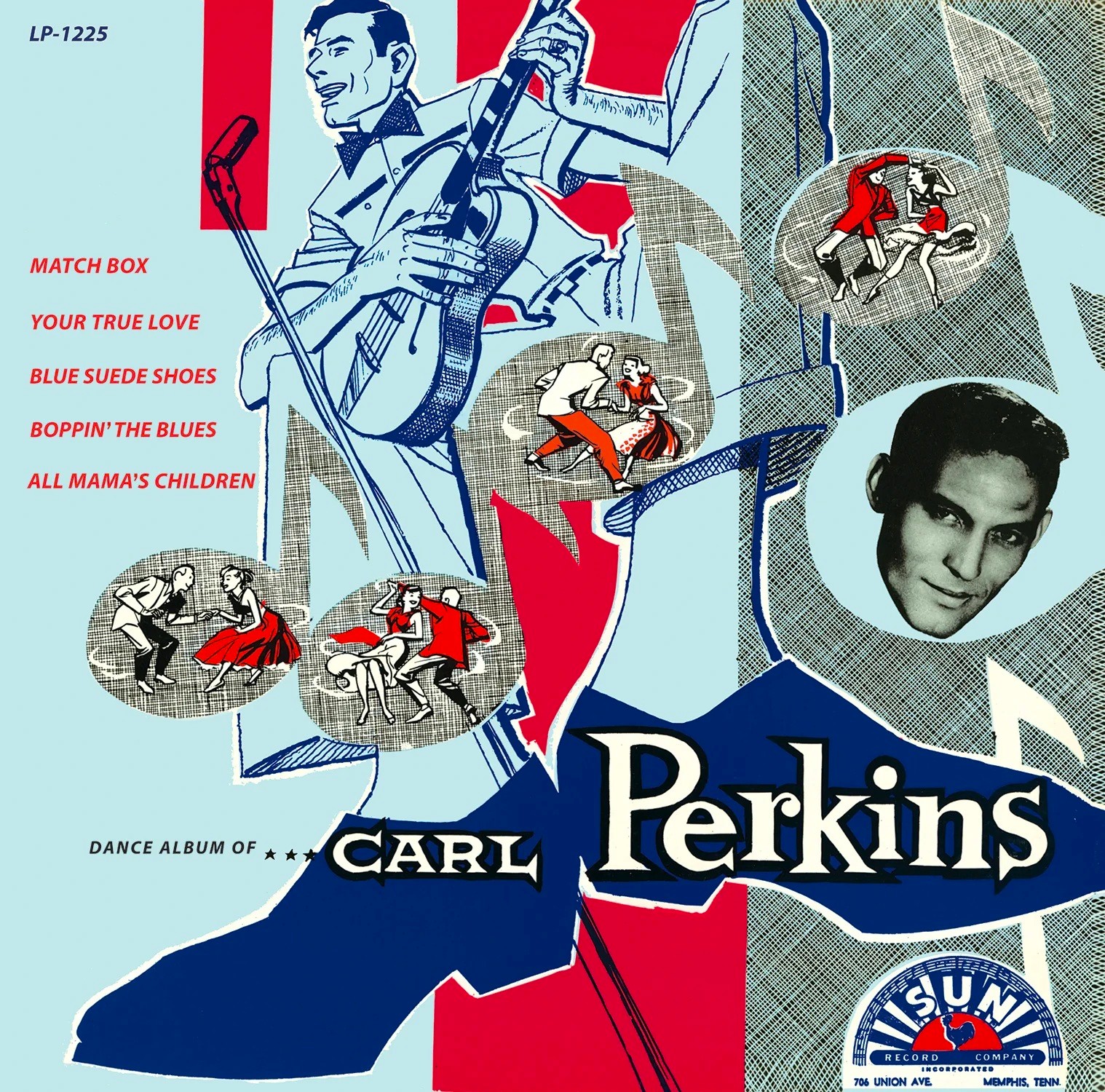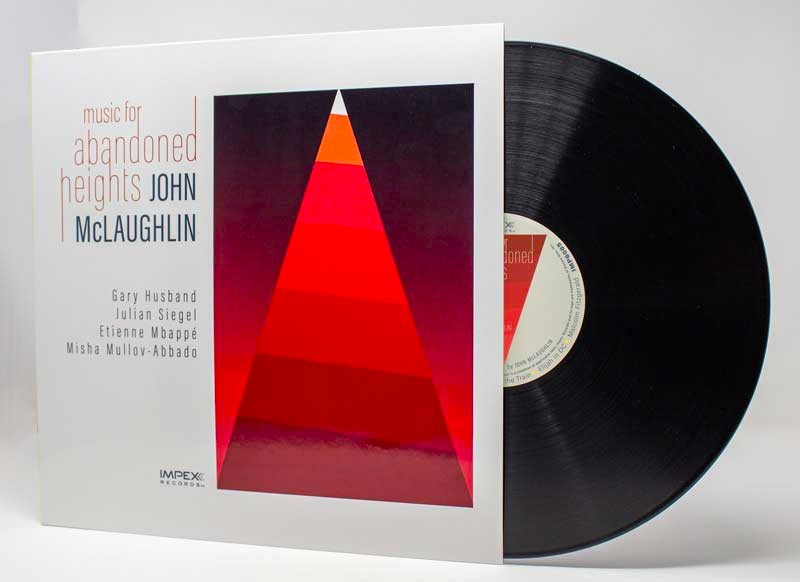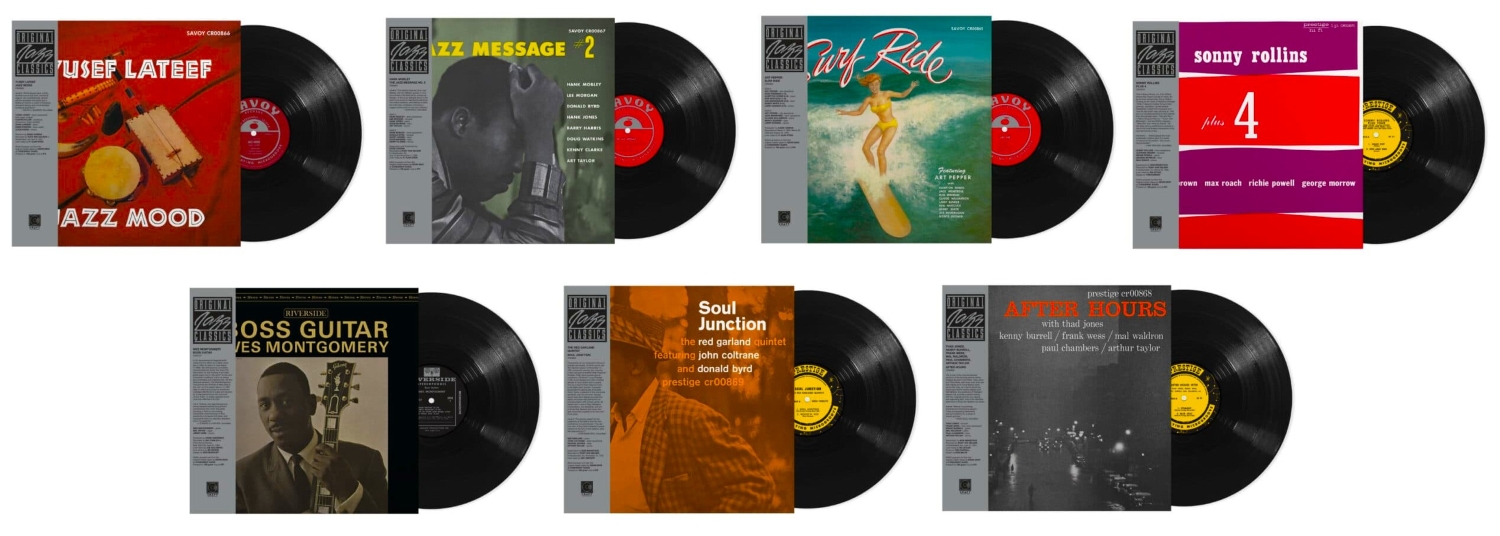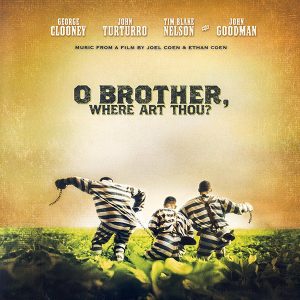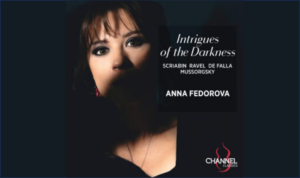Rhino Entertainment, in cooperation with Sunset Boulevard Records is celebrating the 50th anniversary of the release of Bob Neuwirth's self-titled debut album, Bob Neuwirth. Many of you are probably asking yourselves the same question I asked upon receiving the initial press release for this LP from Shore Fire Entertainment: "Bob Neuwirth? Who is Bob Neuwirth?" Fortunately, and about the same time as I received (and prior to my reading) the press release, I also saw a video short online for director James Mangold's upcoming Bob Dylan biopic, A Complete Unknown, which stars Timotheé Chalamet as Bobby D.; the video also happened to mention that actor Will Harrison was playing the part of Bob Neuwirth in the film. Let's reset from the very beginning: "Okay, so who is Bob Neuwirth?"
Bob Neuwirth, as it turns out, was perhaps the It guy of the early-to-mid-Sixties, and had his hands in or on much of the music that grew to shape the folk-rock explosion from that period and into the mid-Seventies. But Neuwirth never actively sought the spotlight; he was mostly known for his sardonic wit and his unmistakably "hip" appearance; none other than T Bone Burnett was quoted as saying "We all wanted to look like Bob Neuwirth." Neuwirth was part of Bob Dylan's entourage for much of the decade, and was not only Dylan's friend and confidant, but also served as his road manager. British music journalist Colin Irwin, in his book Legendary Sessions: Bob Dylan: Highway 61 Revisited, described Bob Neuwirth thusly: "Painter, road manager, sidekick, confidante, henchman, poet, underground cult hero, womanizer, party organizer, self-appointed king of cool, and baiter-in-chief of (Joan) Baez, Donovan (Leitch), and any other unfortunate who wound up in the line of fire of his sledgehammer jibes, Neuwirth went on to become a film-maker and a credible singer-songwriter in his own right, co-writing the wonderful "Mercedes Benz" with his friend Janis Joplin."
He was there at Dylan's 1965 Newport Folk Festival appearance, when Dylan notoriously plugged in and delivered a raucous electric set where all hell broke loose among the folk purists; Dylan single-handedly managed to turn the folk music world on its ear, practically overnight. Neuwirth was also at the Royal Albert Hall concerts that followed and received a similarly chaotic reception; he was onboard for many of Bob Dylan's most important moments in the early-to-mid-Sixties and later in the mid-Seventies. Following Dylan's motorcycle accident, when the artist retreated from the public eye for several years, Neuwirth gradually fell out of an almost totally withdrawn Dylan's inner circle. He then headed for L.A., soon falling in with Laurel Canyon and Troubadour Club regulars, which included the Eagles, Jackson Browne, Joni Mitchell, Linda Ronstadt, and Roger McGuinn of the Byrds. He was also signed by David Geffen to his upstart Asylum Records, and eventually began work on his eponymous debut, 1974's Bob Neuwirth. He briefly returned to Bob Dylan's orbit during the 1975 Rolling Thunder Revue tour, performing and emceeing many of the tour stops; he can be heard introducing Joni Mitchell's live performances that were included in her recently released Joni Mitchell Archives Vol. 4 box set.
Bob Neuwirth was a critical and commercial failure, due in no small part to Neuwirth's lack of insistence that Asylum Records heavily promote the album. The fact that the album was a congested mess of a recording also contributed to its poor sales, though it has since gone on to become a cult favorite. T Bone Burnett was recently quoted in Variety, describing the album as "unlistenable" and "overbaked," and also saying: "It's only slightly hyperbolic to say there might've been more big names joining Neuwirth in the studio than there were people who (actually) bought the (resulting) LP." Neuwirth didn't record a follow-up until 1988's Back To The Front, which was critically praised, but still sold poorly. Bob Neuwirth, by that point, had chosen to spend much of his time painting, and identified Jackson Pollock as a major influence. Despite recording more albums in the Nineties and beyond, Neuwirth's music-oriented activities mostly tended to focus on music documentaries, like D.J. Pennebaker's film Down from the Mountain, which highlighted the artists that had suddenly gotten attention after the release of the Cohen Brothers' 2000 film O Brother, Where Art Thou? Bob Neuwirth died on May 18, 2022 from the ongoing effects of heart failure; he was 82 years old.
Record producer and engineer John Hanlon remixed Bob Neuwirth for reissue in Los Angeles at The Village in August 2022. Neuwirth had reached out to his friend Hanlon prior to his death with the hopes that he might be able to take the original tapes and create a definitive version of the album that best represented his legacy. Paula Batson, Neuwirth's long time partner, served as co-executive producer for the reissue along with Hanlon, and she confided to him that Neuwirth had never really been happy with the results of the original release. David Geffen threw a lot of money at the original sessions for Bob Neuwirth, and Neuwirth had confided to Hanlon that those studio sessions were a "drunken alcohol fest." And that Neuwirth was encouraged and allowed to indulge his excesses, and with the vast cast of musicians and layer upon layer of over-the-top instrumentation, his vision for the album had gotten overwhelmed. When Hanlon questioned Neuwirth about his intentions for the remix, Neuwith—who was familiar with Hanlon's excellent work for Neil Young's archives—simply told him to "Just do what you do." Neuwirth died before the work began, and Hanlon worked painstakingly with the original tapes to try and reconstruct a more cohesive and less cluttered version of the original.
Bob Neuwirth is being reissued as a limited pressing of 750 LPs, on compact discs, and will eventually be released as 24/96 high-resolution digital downloads. There's also a limited edition of 100 copies of the LP that includes a Neuwirth print that adds significantly to the cost, but also elevates its desirability and collectability. The album was remastered by Chris Bellman, who also cut new lacquers for the LP at Bernie Grundman Mastering in Hollywood. The single-sleeve jacket duplicates the original (as far as I can tell, originals are relatively rare!); the original album photography, which was taken from Polaroids during the album sessions, doesn't have the greatest level of clarity, but that's part of its charm, and besides, Neuwirth didn't want the focus (pun intended) to be on him, anyway. The documentation included in my advance press release contained entertaining and informative new liner notes from critic and long time L.A. Times music editor Randy Lewis; no printed insert was included in the album sleeve, but you can read them HERE. You can order both LPs and CDs of Bob Neuwirth from a variety of online vendors; while Bandcamp is the source of the limited LP+ Bob Neuwirth print bundle, the album is also available at brick-and-mortar locations, as well as from your local independent record store.
Bob Neuwirth: Bob Neuwirth, 140 Gram Sunset Boulevard Records LP, $24.99
By the time Bob Neuwirth arrived in Los Angeles in the early Seventies, the level of celebrity he had achieved preceded him, and the party that surrounded him was never-ending. Not only was he noteworthy as a prominent member of Bob Dylan's entourage, but he had also gained renown for having co-written "Mercedes Benz" with the late Janis Joplin, as well as having recommended Kris Kristofferson's new song "Me and Bobby McGee" to her, both of which propelled her album Pearl to the top of the charts in 1970. Neuwirth was also credited for having convinced Patti Smith to convert her poetry into songs, and to also start a band. And he toured as the opening act for Kris Kristofferson and Rita Coolidge. Part of the magic that was Bob Neuwirth was that he never focused on his own star power, but was very adept at helping other musicians move towards greater levels of artistic and commercial success. If there was anyone in LA you wanted to be close to, Bob Neuwirth was that man. Despite Neuwirth spending most of his spare time in his studio painting rather than writing songs, David Geffen had no hesitation to sign him to Asylum Records and made the necessary arrangements to begin recording Bob Neuwirth, sensing that he would definitely be Asylum's next big artist.
The A-list musicians that were gathered for the recording sessions included Kris Kristofferson and Rita Coolidge, along with most of their touring band; Roger McGuinn, Don Everly, Cass Elliot, Richie Furay, Booker T. Jones, Chris Hillman, Geoff Muldaur, Dusty Springfield, Timothy B. Schmit, Jeff "Skunk" Baxter, Ben Keith, Ian Matthews, Timothy B. Schmit, and Stephen Bruton, and even a horn section that included jazz greats Plas Johnson and Blue Mitchell, among a host of others. Neuwirth recruited many of those involved in his album sessions for Bob Dylan's Rolling Thunder Revue tour he organized and also performed with in the following year. Neuwirth wasn't blessed with the most distinctive of musical voices; on the same token, though, neither was Bob Dylan, and can you imagine anyone other than Dylan singing any of his studio recordings? Yes, everyone has covered Dylan ad nauseam, but you get the gist of it—Bob Neuwirth's voice was perfect for his own songs and the handful of covers he chose to round out his freshman effort. The bigger problem was the listener's inability to really hear his voice that was nearly buried in the overly-dense mixes created by original session producer Thomas Jefferson Kaye.
Bob Neuwirth was never reissued domestically on LP following its 1974 release, was never issued as a cassette, and only received a limited release on compact disc in 2003 from the California-based Water label. Very few copies of LPs or CDs are currently available on Discogs, and with the noted problems with the record's original sound, why would you want one, other than for posterity? I took the liberty of listening to the original mixes of Bob Neuwirth on streaming service Qobuz, and trust me on this one—it's every bit as overblown as T Bone Burnett and countless others have testified. Case in point: the song "Just Because I'm Here," in which Bob Neuwirth's performance is buried under the weight of countless instrument multitracks, where Thomas Jefferson Kaye perhaps felt obligated to juice the recording mix levels because of the star power of the individual players? Compare that to John Hanlon's new mix, which maintains the delicacy of Neuwirth's baseline performance, with everyone else mixed at completely sane levels—it totally altered my perception of the track's poignant beauty, which is lost in the original.
"Kiss Money" is another telling example, where on the original, the pedal steel track (among others) is mixed so prominently that it dominates both Neuwirth's vocals and the backup singers; Hanlon's new mix restores the all-important vocals to more appropriate levels, while pushing the pedal steel back to a supporting role. Neuwirth's rendition of Don Gibson's classic "Legend in My Time" is primarily overwhelmed by the level of the dobro track, but the nearly orchestral (and I don't mean that in a good way!) mix of almost every backing track in Kaye's original recording turns the tune into a travesty, rather than the paean to country music that Neuwirth intended. Hanlon's mix eliminates the bombast, while maintaining the almost self-deprecating intent of Neuwirth's performance, where he makes it very clear that he never wanted the spotlight. I could go on and on, but you get the picture—John Hanlon's remix of Bob Neuwirth has removed it from footnote status and restored it to the classic that Neuwirth intended. Standout tracks include the opener, "Rock & Roll Time" (co-written with Kris Kristofferson and Roger McGuinn), "Kiss Money," the brawling, beer-joint singalong "Honky Red" which should have been a Seventies anthem on its own merit, and "Country Livin'," which rather than a celebration of the simple life extolls that "This livin' in the country is damn-near killin' me!" And of course, Neuwirth's classic "Mercedes Benz," where he generously suggests that the Lord buy all his friends a Mercedes Benz!
Here's the LP tracklist:
Bob Neuwirth
Side 1
- "Rock & Roll Time"
- "Kiss Money"
- "Just Because I'm Here (Don't Mean I'm Home)"
- "Honky Red"
- "Hero"
Side 2
- "Legend In My Time"
- "Rock & Roll Rider"
- "We Had It All"
- "Country Livin'"
- "Cowboys & Indians"
- "Mercedes Benz"
Bob Neuwirth has been miraculously brought back to life by the efforts of John Hanlon
You can see the components that occupy my dual audio systems by clicking on my name in the header above. I used the tube-based, all-analog setup to evaluate the 140 gram LP reissue of Bob Neuwirth. That system has been recently updated with a new pair of XSA Labs Vanguard standmount compact monitor loudspeakers, which incorporate many of the hallmarks of classic British monitor designs like LS3/5A, but with a slightly more substantial cabinet. The Vanguards have elevated playback in my near-field, all-analog setup, and run in tandem with a Caldera 10 subwoofer that bolsters the bottom end with additional octaves of exceptionally tuneful bass. The system also incorporates the excellent PS Audio Stellar phono preamp, and as usual, LP playback was handled by my ProJect Classic EVO turntable that's mounted with an Ortofon Quintet Bronze MC cartridge. The upgraded PrimaLuna EVO 300 tube integrated amplifier now features a matched quad of Sovtek 6550 power tubes and a matched pair of NOS Brimar 12AU7 input tubes. It's a vintage but modern system that provides the kind of sumptuous analog sound that's totally apropos for this classic LP.
The LP was pressed by Studio 4 Vinyl in Chester County, Pennsylvania, and the vinyl surfaces were glossy and free of any visible defects. This was my first experience with a pressing from Studio 4 Vinyl, and the LP was razor-flat, perfectly centered, and exceptionally quiet. I'd never heard (or seen) an original pressing of this record, and was unfamiliar with the recordings' host of well-documented problems; as I mentioned above, this isn't a title you generally see in used record racks. That said, I can't imagine this new remix and reimagining of Bob Neuwirth's masterpiece isn't exactly what he had in mind when he entered the studio, before the copious levels of alcohol and impairments of every description got in the way of the performances. Bob Neuwirth isn't a perfect album by any stretch of the imagination, but it's an exceptionally entertaining collection of well-crafted songs, mostly performed by LA royalty of the day. Several of the songs ought to have gotten a ton of airplay back in the day—Bob Neuwirth deserves to be in everyone's record collection, rather than just a footnote in a handful of Bob Dylan biopics.
Prior to hearing the LP, I was initially a bit perplexed by how to proceed with my review of Bob Neuwirth, but after digging into the fascinating backstories for both the artist and the album, I was hooked. Bob Neuwirth's music was the icing, and kudos to John Hanlon for his excellent remix, and also to Chris Bellman for the equally superb lacquers. And if you happen to miss out on an LP copy, or if vinyl just isn't your thing, compact discs are also out there, along with high resolution digital files (I've heard them, they're remarkable!) that will soon be available for streaming or download on all the major services. Thanks to Taylor Perry at Shore Fire Media for bringing this reissue to my attention; Bob Neuwirth comes very highly recommended!
Sunset Boulevard Records
Bob Neuwirth
Rhino Entertainment
All images courtesy of Sunset Boulevard Records, Rhino Entertainment, and Shore Fire Media.




